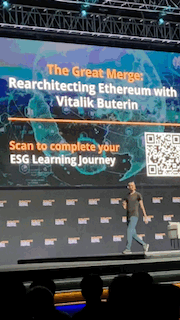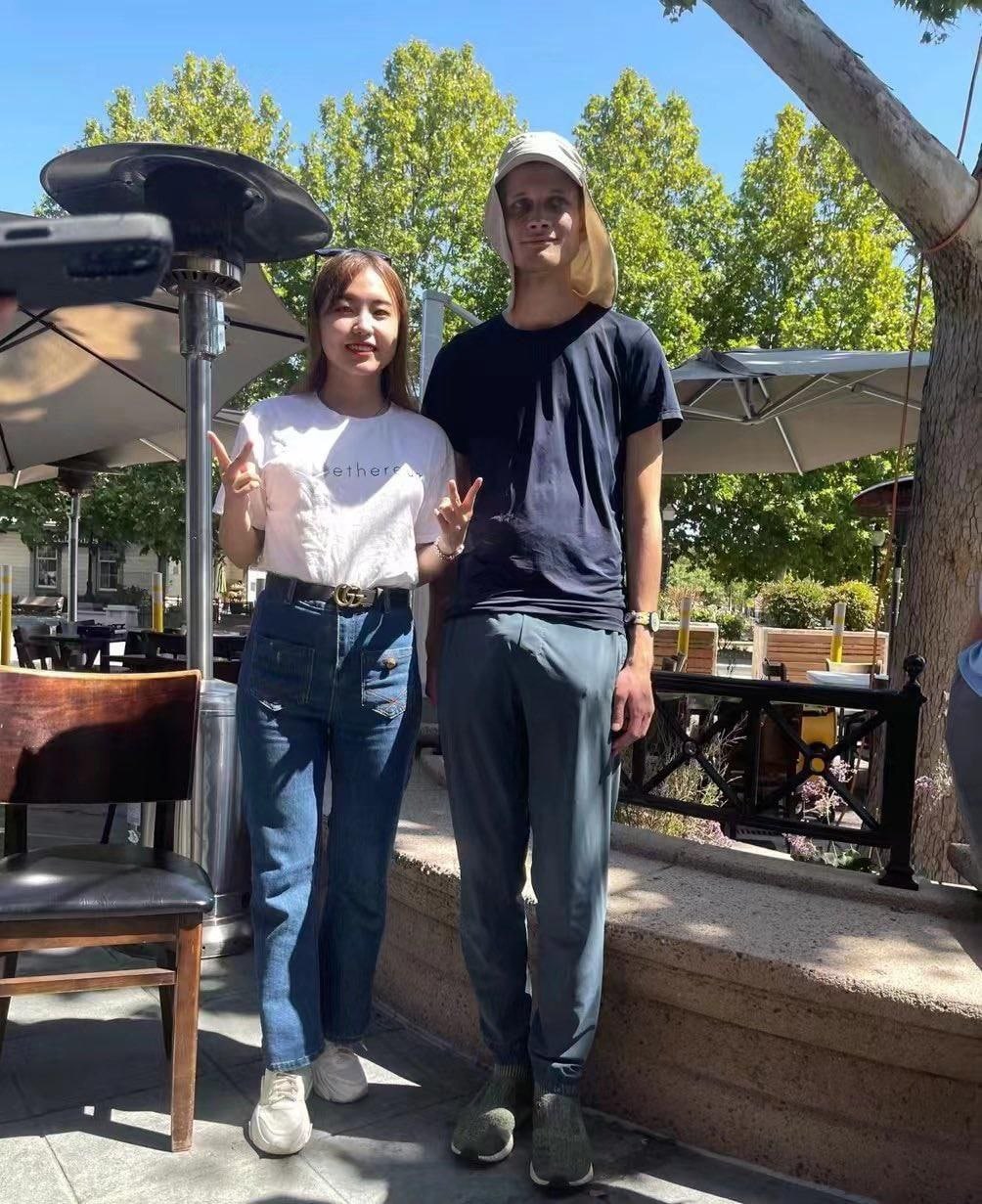Table of Contents
Vitalik Buterin darted across the stage, waving and staring at the audience absent-mindedly before slipping off the platform and recomposing himself with an awkward grin.
The Ethereum founder is in town for Singapore Fintech Festival 2022, and was speaking about Ethereum’s recent developments, including its shift from Proof-of-Work (PoW) to Proof-of-Stake (PoS), and some of the network’s future plans.

Fiddling with his water bottle cap (he must have open and closed it upwards of 20 times during his appearance on stage), Buterin waxed lyrical about the technicalities of Ethereum 2.0’s new features, barely pausing to take a breather while he anxiously paced up and down the stage.
Buterin said that the Ethereum’s new PoS consensus “basically completely” solves the electricity waste issues – what many have criticised blockchain and cryptocurrencies for in the past.
“Major estimates have suggested that after the merge, Ethereum consumes about 99.95% less electricity, at least 2,000x less electricity than it did before,” he explained.
“Ethereum now consumes less energy than most mainstream, and even centralised web services that everyone uses,” he added.
Buterin noted that the PoS design has increased the stability of Ethereum, with the network running “almost perfectly smoothly” after the upgrade. He also said that it has become much more difficult to attack Ethereum, and it’s now easier for developers to make future upgrades (e.g. improvements related to sharding) and build on the blockchain for the next 5 to 10 years.
“it’s just a generally more sustainable Ethereum protocol with PoS,” he said.
What next for Ethereum…What next for crypto?
On the road ahead, Buterin said that the ecosystem needs to solve three “very important” issues – scalability, user experience and security, and privacy.
“The reality is that there are 8 billion people in the world and the vast majority of them are not using blockchains. Even if the majority of people who are using cryptocurrencies are not using cryptocurrencies through blockchains today,” he opined, adding that users are merely interacting with crypto through centralised intermediaries like exchanges because blockchains are still not scalable and user-friendly.
“It’s a very unfortunate situation because you lose the benefits of a trustless, transparent, and decentralised systems,” he emphasized.
Buterin also mentioned that there have been many improvements on privacy since zero-knowledge proof technology, and that Ethereum will benefit from “danksharding,” which basically improves the Ethereum base layer by adding a larger amount of data space, which in turn helps Layer 2s improve the overall scalability of Ethereum.
However, Buterin said that identity is be a central question web3 would have to deal with going forward. “There is an organically emerging identity layer, which will grow and continue integrating with the mainstream,” he said.
Instead of Blockhead’s ultra-relevant question of whether Buterin was wearing the same pants as seen in the picture below, Buterin was instead asked about his opinions on Elon Musk’s already well-publicised acquisition of Twitter – an irrelevant question and a wasted opportunity, given that Buterin’s recent appearances at large-scale events have been via webcam.

“Elon is a really high variance actor…in some ways Twitter is great and in others, it’s terrible,” Buterin said, adding that the social media platform is currently filled with bots trying to shill shit coins that don’t actually have a protocol backing them.
Buterin also chimed in on Singapore’s regulatory landscape, in response to the MAS’ usual jibe at cryptocurrencies and their speculative nature.
He pointed out that Singapore is lucky enough to enjoy a stable currency and economy, something that other countries may not have, which is why cryptocurrencies are still a viable form of “money” for them.
“Yeah cryptocurrencies rise and fall, but for them, their fiat currency just falls and falls,” he said.
Many in the audience sniggered, and even the men and women in suits, who probably didn’t know who Buterin was, let out reluctant chuckles.









